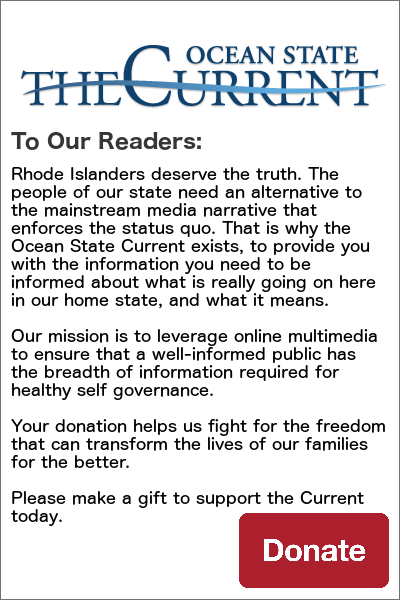The One Area That’s Corruption Free… Right?
John Marion of Common Cause Rhode Island put out a series of tweets on his personal account that are worth considering in more detail than I will, here:
We didn’t put out any statement @commoncauseri about Ken Block’s rpt. Given he’s testifying this morning I want to share a few thoughts
Social scientists have done rigorous research on the ? of matching voter lists. Suggestions that no one has taken serious look are false
One example: “One Person, One Vote: Estimating the Prevalence of Double Voting in U.S. Presidential Elections”
What do the authors of this study conclude? If you try to match voter files you come up with lots of false positives.
What are false positives? They’re false accusations of double voting. Block’s report won’t provide estimated rate of false positives
Unlike Block’s report, these authors dug deeper into how elections are administered & find admin errors likely yield false positives
Their conclusion: “many, if not all, of these apparent double votes could be a results of measurement error.”
There are some good critiques of Block’s methodology, and particularly its opaqueness, out there. Here are a few I found
From @electproject who turned down an offer to testify today when asked to compromise his testimony [link]
This post from @gronke on some of the inaccuracies in Block’s report [link]
This even-handed look at all the presentations from @maxhailperin [link]
I’m sure there are others that I’m missing. Point is that you can’t take this report at face value. Be skeptical, and read the experts
As I’ve written or said somewhere recently, perhaps on one of these segments of the John DePetro Show, the objective of most of those who are concerned about vote fraud is not to prove that it has been done, but to make it more difficult to do. Ken Block’s findings about how easy it would be to commit fraud are therefore more relevant than his count of how much fraud may be easily proven.
[box type=”note” style=”rounded”]To Our Readers: We need your support to challenge the progressive mainstream media narrative. Your donation helps us deliver the truth to Rhode Islanders. Please give now.[/box]
On that note, contrast Marion’s faith in election officials with his organization’s constant support for campaign finance laws. In large part due to his advocacy, two neighbors who collect a few bucks to push back on some local ballot question get caught up in arduous reporting requirements. Anybody running for any elected office, no matter how small and ultimately powerless, must fill out form after form and open a unique bank account, which must then be added to that person’s list of things of which to keep track.
The forms are a real disincentive against running for office, and the campaign finance regulations are, in my view, unconstitutional. And yet, one suspects that the evidence of systemic fraud in campaign finance would be subject to the same minimizing techniques that Marion applies to voter fraud.
This contrast raises the suspicious peculiarity of left-leaning advocates’ blasé attitude toward hints of voter fraud, as if this is the one area in which our corrupt government and those who seek to manipulate it do nothing wrong. We need detailed public filings from everybody who does more than chat with a neighbor at the fence because some postcard or poster might manipulate public sentiment, and yet it’s somehow inappropriate to worry that the very same politicians might manipulate voter rolls.
Even more, those on the Left push policies that expand the ability of everybody to vote but create barriers to actually running. Vast numbers of people voting (without having to cross even minimal thresholds of effort to register) for shrinking numbers of candidates (who are self selected as those willing to jump through hoops for the power) is a dangerous combination.
In Rhode Island, we can plainly see the effect of all of those mechanisms that help insiders stay in office and tilt government in their favor, from legislative grants to leadership-heavy rules to sudden changes of the rules when things don’t work out, as well as all the institutional bias in the direction of government employees. Nationally, we’ve seen this impulse be as dramatic as the IRS’s targeting of Tea Party groups.
But we’re supposed to believe that these same insiders just leave everything to chance and a fair political competition when it comes to actual voting? Marion’s certainly correct in his advice to “be skeptical,” although I find it puzzling what he chooses to be skeptical about.


